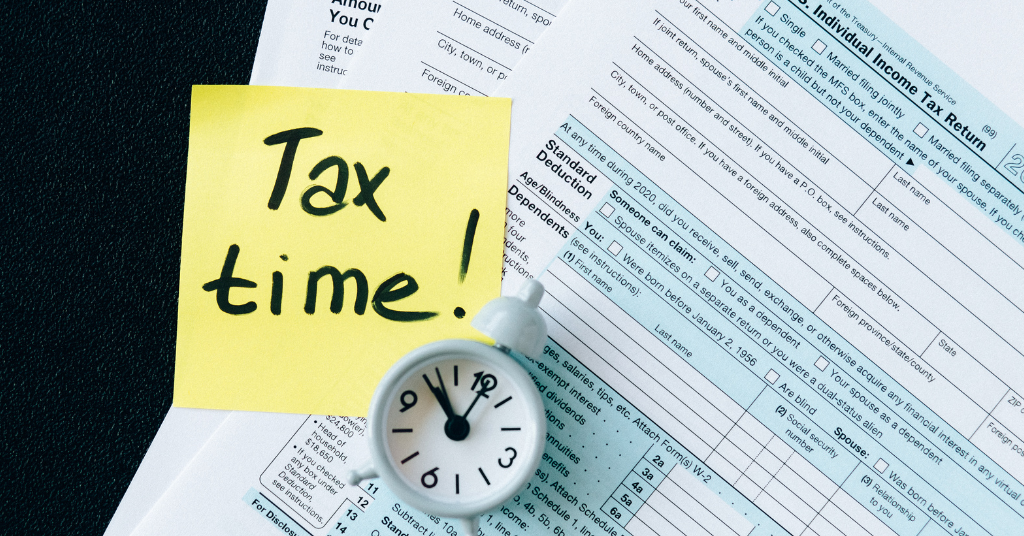

Maximize Your 2024 Refund: Tax Breaks You Might Be Missing
Category: Accounting
Fundamental changes intended to improve the U.S. retirement system are again on the agenda in Congress. The H.R. 294 – Securing a Strong Retirement Act, known as the ‘SECURE Act 2.0’, recently passed the House of Representatives with strong bipartisan support.
The bill will need to clear the Senate, which is moving more slowly and is sure to make some changes. The House will need to reconcile those changes with its version before the bill ultimately makes its way to the President’s desk. However, the legislation currently enjoys overwhelming support from both sides of the aisle (the vote in the House was 414 to 5 in favor), so with the Senate likely to take action later this spring, there are wide expectations that the ‘SECURE Act 2.0’ will become law within the year.
What will this mean for taxpayers?
For both retirement savers and employers, the news will probably be good. At the same time, you should be aware of some aspects of the proposed law to avoid the potential for an unpleasant surprise at tax time.
To understand the benefits and possible pitfalls taxpayers will need to be aware of should the ‘SECURE Act 2.0’ become law, continue reading below.


The proposed new law would build upon the foundation established by the previous SECURE Act, which became law in 2019. This first law formally called the Setting Every Community Up for Retirement Enhancement (SECURE) Act, contained significant and far-reaching changes to IRAs, 401(k)s, RMDs, and more.
The first significant piece of retirement-related legislation in over a decade, the 2019 SECURE Act, aimed to address the U.S. retirement saving crisis by increasing access to tax-advantaged accounts and making it cheaper and easier for small business owners to set up retirement plans.
The new so-called ‘2.0’ version expands the original’s initiatives with more changes to some of the most popular retirement plans and establishes automatic enrollment and increased incentives for plan startup.
One of the most important provisions of the ‘SECURE Act 2.0’ is the expansion of mandatory automatic enrollment in retirement plans, which Congress hopes will encourage participation and make it easier for eligible employees to participate.
Essentially, the proposed law would mandate that smaller employers with 401(k) and 403(b) plans automatically enroll eligible newly-hired employees at a pretax contribution rate of at least 3% and then increase it annually up to at least 10%, but not more than 15%, of the employee’s pay. (Employees could choose to opt out of this requirement or elect a different contribution.)
It is worth noting that this mandate would only apply to new plans created after the law’s passage, whereas it would grandfather any plans that existed before the legislation’s enactment. Additionally, it would exempt businesses with ten or fewer employees and those in business for less than three years.
The act would make various changes to simplify and clarify individual retirement accounts (IRAs).
Some highlights include:
The act would also increase the annual catch-up contribution amount, or the amount participants aged 50 or older may exceed yearly IRS limits on contributions to their 401(k)s and IRAs.
Under current law, those who qualify may contribute $6,500 per year over the standard limit to a 401(k), and an extra $1,000 to an IRA.
Both the House and Senate versions of the bill would generously expand these amounts for certain participants, although the two differ in terms of specifics.
The House bill aims to expand the catch-up amount to $10,000 for contributors who are 62, 63, or 64 years old beginning in 2024. Meanwhile, the Senate version also raises the limit to $10,000 but applies eligibility more broadly to anyone over age 60.
Simultaneously, the House bill also treats all catch-up contributions to 401(k)s as Roth contributions (in other words, after-tax), beginning in 2023. This serves to generate immediate revenue for the government but may come as an unpleasant surprise to some taxpayers.
Required Minimum Distributions (RMDs) are the minimum amount the IRS requires a retirement plan owner to withdraw from their account each year. RMDs can be a critical component of a good retirement income strategy, provided the owner understands how to maximize the withdrawal strategy and avoid penalties for late distributions.
There are no RMDs for Roth IRAs. However, they do apply to tax-deferred accounts, such as Traditional, Rollover, SIMPLE, and SEP IRAs, as well as most 401(k) and 403(b) plans.
The SECURE Act of 2019 increased the age at which participants in IRAs or employer-sponsored retirement plans must begin taking RMDs, from 70 ½ to 72 years of age.
If passed, the ‘2.0’ SECURE Act would further increase the age for RMDs to:
Once again, the Senate’s version of the bill differs somewhat. The proposal now under debate in the upper chamber would raise the RMD age to 75 by 2032, waiving RMDs for individuals with less than $100,000 in aggregate retirement savings and reducing the penalty to 25% (from the current 50%) for failure to take RMDs.
There are also additional ways in which the legislation would impact employer-sponsored retirement plans.
For example, ‘SECURE 2.0’ would allow small employers with 50 or fewer employees to utilize 100% of an income tax credit for retirement plan start-up costs in the year of credit. This would represent an increase over current law, which allows employers with 100 employees or fewer to claim a credit equal to 50% of startup costs in the first credit year and each of the two immediately following taxable years (limited to the greater of $500 or $250 per eligible employee, not to exceed $5,000).
The proposed law would also provide a new additional credit for small employer retirement contributions made to a qualified employer plan, allow for the creation of a 403(b) plan as a multiple-employer plan, permit retirement plan matching contributions for student loan payments, expand and clarify rules to improve coverage for long-term, part-time workers, and more.
The final form in which the ‘SECURE Act 2.0’ will become law is unknown. However, given the high likelihood that some version of the bill will become law this year, it is not too soon to start understanding how it will impact your retirement planning strategy.
The changes are sure to be complex and myriad; we stand ready to assist you in unraveling them.
If you are a client and would like to book a consultation, call us at +1 (212) 382-3939 or contact us here to set up a time.
If you aren’t a client, why not? We can take care of your accounting, bookkeeping, tax, and CFO needs so that you don’t have to worry about any of them. Interested? Contact us here to set up a no-obligation consultation.
Interested in receiving updates in your mailbox? Check out our newsletter, full of information you can use. It comes out once every two weeks, and you can register for it below.


Category: Accounting


Category: Accounting


Category: Accounting
Send us a message and we will contact you as soon as possible.
Send us a message and we will contact you as soon as possible.
Jeff Coyle, CPA, Partner of Rosenberg Chesnov, has been with the firm since 2015. He joined the firm after 20 years of business and accounting experience where he learned the value of accurate reporting, using financial information as a basis for good business decisions and the importance of accounting for management.
He is a diligent financial professional, able to manage the details and turn them into relevant business leading information. He has a strong financial background in construction, technology, consulting services and risk management. He also knows what it takes to create organizations having built teams, grown companies and designed processes for financial analysis and reporting.
His business experience includes:
Creating and preparing financial reporting, budgeting and forecasting.
Planning and preparation of GAAP and other basis financial statements.
Providing insight on financial results and providing advice based on those results.
Jeff also has a long history of helping individuals manage their taxes and plan their finances including:
Income tax planning and strategy.
Filing quarterly and annual taxes.
Audit support.
General financial and planning advice.
Prior to joining the firm in 2015, Jeff was in the private sector where he held senior financial and management positions including Controller and Chief Financial Officer. He has experience across industries, including construction, technology and professional services which gives him a deep understanding of business.
Jeff graduated from Montclair State University, he is a CPA and member of the American Institute of Certified Public Accountants, New York State Society of Certified Public Accountants and New Jersey State Society of Public Accountants.
Jody H. Chesnov, CPA, Managing Partner of Rosenberg Chesnov, has been with the firm since 2004. After a career of public accounting and general management, Jody knows the value of good financials. Clarity, decision making, and strategy all start with the facts – Jody has been revealing the facts and turning them into good business results for more than three decades.
He takes a pragmatic approach to accounting, finance and business. His work has supported many companies on their path to growth, including helping them find investors, manage scaling and overcome hurdles. His experience and passion for business reach beyond accounting and he helps businesses focus on what the numbers mean organizationally, operationally and financially.
He has a particular expertise in early-stage growth companies. His strengths lie in cutting through the noise to come up with useful, out of the box, solutions that support clients in building their businesses and realizing their larger visions.
Prior to joining the firm in 2004, Jody was in the private sector where he held senior financial and management positions including General Manager, Chief Financial Officer and Controller. He has experience across industries, which gives him a deep understanding of business.
Jody graduated with a BBA in Accounting from Baruch College, he is a CPA and member of the American Institute of Certified Public Accountants and New York State Society of Certified Public Accountants.
In addition to delivering above and beyond accounting results, Jody is a member of the NYSCPA’s Emerging Tech Entrepreneurial Committee (ETEC), Private Equity and Venture Capital Committee and Family Office Committee.
He is an angel investor through the Westchester Angels, and has served as an advisor for many startup companies and as a mentor through the Founders Institute.